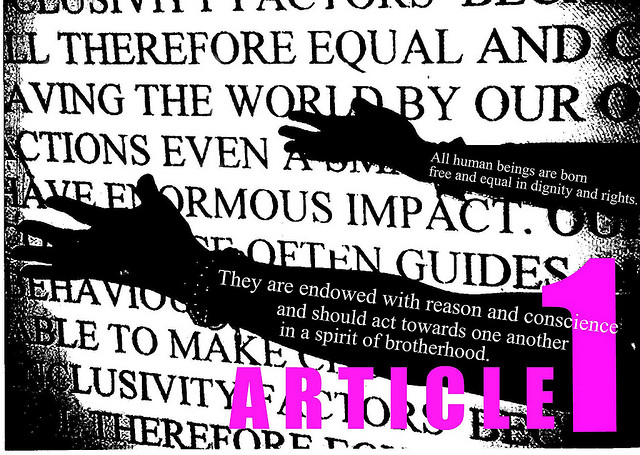The existence of poverty in British Columbia is a violation of human rights. There is not only a moral duty to eradicate poverty but also a legal obligation under international human rights law. Just before the holidays, December 10 was International Human Rights Day but we have little to celebrate here in B.C.
A human rights approach to poverty is based on a fundamental respect for human dignity as opposed to a charitable approach, which, let’s be honest, situates poor people as pitiful. A human rights framework recognizes people in poverty as rights-bearers entitled to assert legal claims rather than being passive recipients of charitable aid.
In 1976, Canada ratified the United Nations International Covenant of Economic, Social and Cultural Rights, which recognizes “the right of everyone to an adequate standard of living for himself and his family, including adequate food, clothing and housing, and to the continuous improvement of living conditions.”
The government of British Columbia is clearly failing to meet its human rights obligations. B.C. has had one of the highest poverty rates in Canada for the last 13 years, and yet, it is now the last province left without a poverty reduction plan.
The high rates of child poverty in B.C. violate B.C.’s obligations to respect children’s rights as enshrined in the United Nations Convention on the Rights of the Child. This includes “children’s right to a standard of living adequate for their physical, mental, spiritual, moral and social development,” which is far from being met by keeping children in poverty and malnourishment.
BC’s welfare rate of $610 per month is grossly inadequate to provide an adequate standard of living, and the minimum wage of $10.25 per hour is still not enough to lift a full-time worker above the poverty line. “The UN Committee on Economic, Social and Cultural Rights has expressed particular concern about women’s poverty in B.C., noting that inadequate welfare rates present an additional obstacle for women fleeing abusive relationships” (West Coast LEAF’s 2014 CEDAW Report Card, Oct. 2014).
Basic civil and political rights, such as freedom of speech and the right to vote, are relatively well protected in Canadian law, but economic and social rights to basic necessities such as food, water, housing, and education are routinely violated. Without these rights secured, poverty is a barrier to accessing civil and political rights in a meaningful and effective way. This has a disproportionate impact on marginalized groups including women, LGBTQ communities, racialized and Indigenous persons, and people with disabilities, among others.
Individuals must have an avenue to claim their rights and report violations. Legislation may be one avenue but it is an expensive route to securing adequate solutions. A human rights commission is an important venue through which rights claimants can obtain a hearing and secure effective remedies but, more importantly, a commission can report on systemic issues and recommend preventative approaches. Unfortunately, B.C. is the only province in Canada without a human rights commission — it was eliminated by the provincial government in 2002 (Strengthening Human Rights: Why British Columbia Needs a Human Rights Commission, CCPA, Dec. 2014).
Despite its human rights obligations, the B.C. government is not ensuring an adequate standard of living, access to legal aid, or adequate health care for all, nor is it respecting the rights of marginalized groups.
It’s time for the B.C. government to comply with its obligations under international law and stop relying on our generosity to tackle the crisis of poverty, a generosity that can never fill the hole left by government inaction.
Trish Garner is the Community Organizer of the BC Poverty Reduction Coalition, a broad-based network of over 400 organizations throughout BC that are calling on the provincial government to commit to a comprehensive poverty reduction plan with legislated targets and timelines.
For more information on this issue, please read Poverty in British Columbia is a Violation of Human Rights, the BCPRC’s recently released position paper on poverty and human rights, which is now the foundation of their approach.
Image: Val Kerry/flickr



